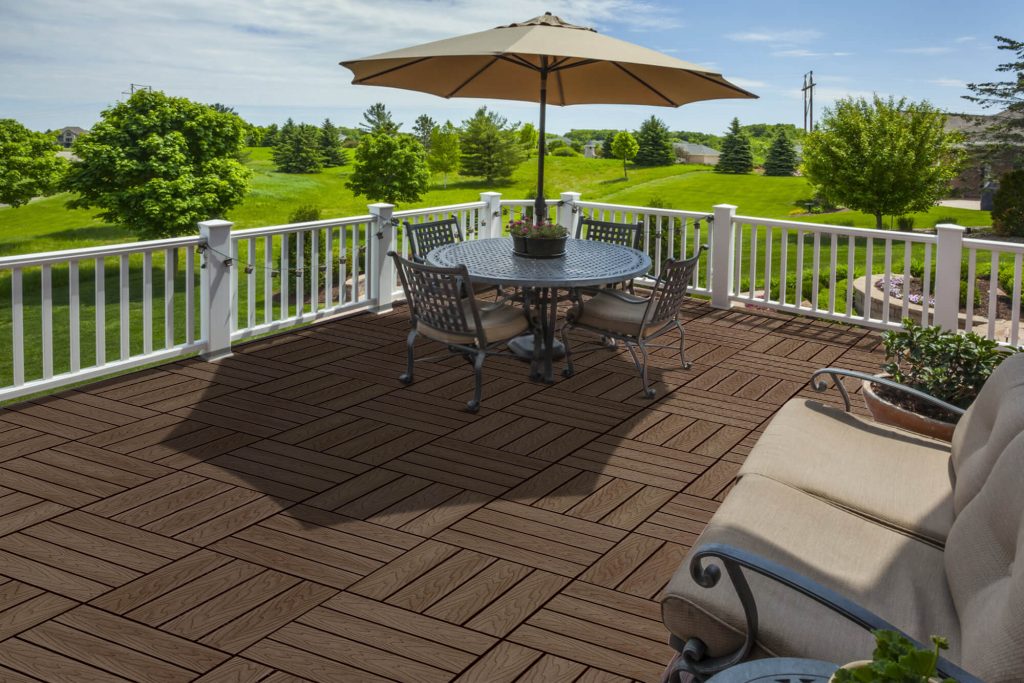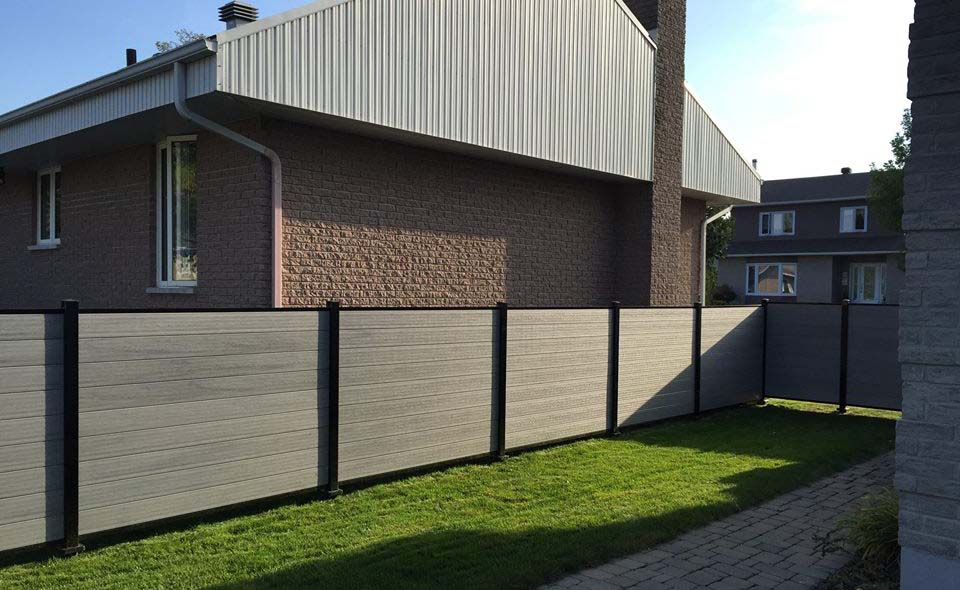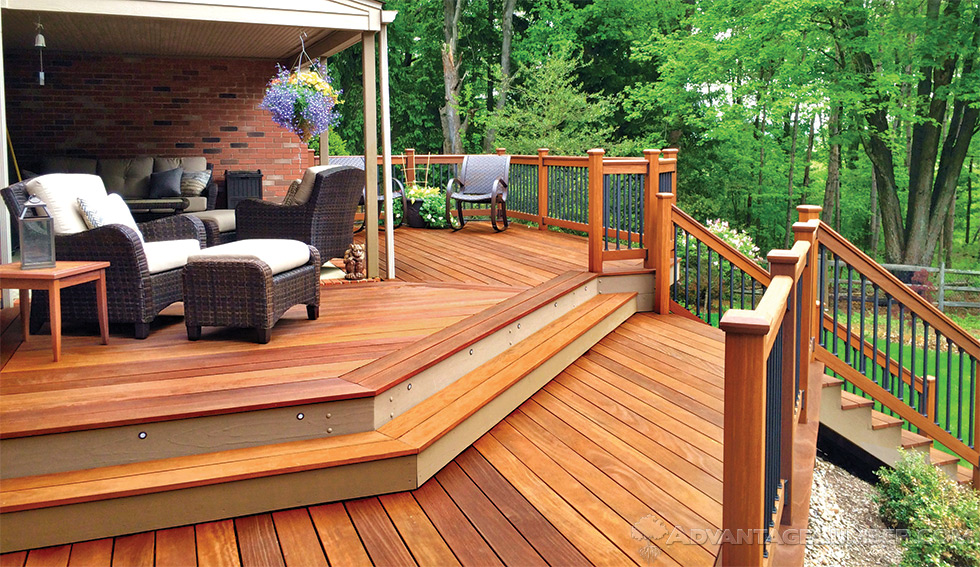If you want to enhancing outdoor spaces, decking has become a popular choice for homeowners, landscapers, and designers across the UK. With a growing demand for low-maintenance, durable, and visually appealing solutions, composite decking tiles have emerged as a top contender. They combine the aesthetics of natural wood with the resilience of modern materials, offering a perfect solution for gardens, patios, balconies, and terraces. In this comprehensive guide, we will explore the best composite decking tiles UK has to offer, focusing on all types, materials, finishes, and installation options.
Table of Contents
What Are Composite Decking Tiles?
Composite decking tiles are modular flooring units made from a blend of wood fibers and recycled plastics. Unlike traditional timber decking, composite tiles are engineered to resist rot, warping, splintering, and fading, making them ideal for outdoor use in the UK’s variable climate. They are typically square or rectangular, with interlocking mechanisms that allow for easy DIY installation without nails or screws.
The best composite decking tiles UK are designed to provide:
Durability: Resistant to moisture, insects, and UV exposure.
Low Maintenance: No need for sanding, staining, or sealing.
Aesthetic Appeal: Mimics the look and feel of natural wood.
Ease of Installation: Interlocking systems allow quick assembly.
Sustainability: Often made from recycled materials, reducing environmental impact.
Understanding the different types of composite decking tiles is crucial to selecting the right option for your outdoor space.
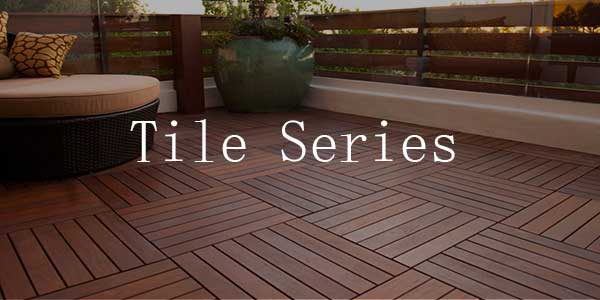
Types of Composite Decking Tiles
Composite decking tiles can be categorized based on material composition, surface finish, installation style, and application. Here’s an in-depth look at the all types available in the UK market:
1. Wood-Plastic Composite (WPC) Decking Tiles
Wood-Plastic Composite (WPC) tiles are the most common type of composite decking tiles. They consist of wood fibers combined with plastic polymers, creating a surface that looks like natural wood but is far more durable.
Key Features:
Smooth, wood-like texture
Resistant to moisture and termites
Available in various shades of brown, grey, and natural wood tones
Easy to cut and install
Advantages:
Minimal maintenance required
Long lifespan of 10–25 years depending on quality
Can be installed over concrete, soil, or existing surfaces
Popular Uses: Garden patios, rooftop terraces, balcony flooring
2. PVC Composite Decking Tiles
PVC decking tiles are made entirely from polyvinyl chloride, providing a 100% synthetic option for outdoor flooring. Unlike WPC, PVC tiles do not contain wood fibers, making them completely waterproof and highly resistant to chemicals.
Key Features:
Fully waterproof
Non-porous surface prevents mold and algae growth
Lightweight and easy to handle
Available in a wide range of colors and finishes
Advantages:
Ideal for wet areas such as pool surrounds or coastal properties
Requires almost no maintenance
Resistant to fading and staining
Popular Uses: Pool decks, wet terraces, urban rooftops
3. Bamboo Composite Decking Tiles
Bamboo composite tiles are a sustainable alternative made from natural bamboo fibers combined with polymers. Bamboo is fast-growing and eco-friendly, making these tiles a green choice for environmentally conscious homeowners.
Key Features:
Natural bamboo grain appearance
Hard and durable surface
Resistant to rot and insect attack
Eco-friendly and recyclable
Advantages:
Adds a tropical or zen-like aesthetic to outdoor spaces
Lightweight yet strong
Performs well in moderate UK climates
Popular Uses: Balcony gardens, small terraces, indoor-outdoor transitions
4. Interlocking Decking Tiles
Interlocking tiles are designed for easy installation without the need for screws or adhesives. They feature a click-lock system that allows them to snap together securely.
Key Features:
Modular design for easy layout changes
No professional installation required
Can be laid directly over concrete, paving stones, or decking frames
Advantages:
Quick and hassle-free installation
Tiles can be replaced individually if damaged
Suitable for DIY projects and temporary setups
Popular Uses: Rental properties, patios, exhibition spaces
5. Perforated Decking Tiles
Perforated or slatted composite tiles have small gaps between the slats for water drainage. These tiles are especially useful in areas exposed to rain or moisture.
Key Features:
Allows water to drain through easily
Reduces the risk of pooling and slipperiness
Provides a modern aesthetic with defined lines
Advantages:
Safe for wet environments
Prevents water damage and prolongs tile lifespan
Easy to clean with a hose
Popular Uses: Garden paths, pool decks, rooftop terraces
6. Smooth Surface Decking Tiles
Smooth composite decking tiles offer a sleek, flat finish with minimal texture. They are ideal for contemporary outdoor designs where a clean look is desired.
Key Features:
Flat and uniform surface
Can be used with outdoor furniture without wobbling
Low slip risk if textured variants are chosen
Advantages:
Perfect for modern minimalist designs
Easy to sweep and maintain
Can be combined with patterned or perforated tiles for visual interest
Popular Uses: Urban patios, balcony flooring, commercial outdoor areas
7. Textured or Wood-Grain Decking Tiles
Textured composite tiles mimic the look of natural timber, including the grain, knots, and ridges. These tiles provide a more authentic wood appearance while maintaining the benefits of composite materials.
Key Features:
Realistic wood effect
Non-slip surface
Available in shades like oak, teak, and walnut
Advantages:
Combines aesthetic appeal with safety
Resists fading and splintering
Ideal for high-traffic areas
Popular Uses: Residential patios, outdoor dining areas, walkways
8. Decking Tiles with Built-in Drainage System
Some premium composite tiles come with integrated drainage channels or grids underneath. This system ensures that rainwater flows away, reducing the risk of standing water and potential damage.
Key Features:
Concealed drainage grid
Prevents water accumulation
Supports airflow underneath tiles
Advantages:
Prolongs tile lifespan
Minimizes maintenance and cleaning
Ideal for outdoor spaces exposed to heavy rain
Popular Uses: UK gardens, balconies, terraces with limited slope
9. Flexible Composite Decking Tiles
Flexible composite tiles are designed for creative layouts and curved surfaces. These tiles can be bent slightly to fit rounded edges or irregular spaces, offering versatility in design.
Key Features:
Slightly bendable without cracking
Lightweight and easy to cut
Suitable for non-linear areas
Advantages:
Perfect for circular patios or decorative borders
Can combine multiple types for aesthetic variation
Easy to modify during installation
Popular Uses: Gardens with curves, balcony corners, custom terrace layouts
10. Eco-Friendly Recycled Composite Decking Tiles
Many UK suppliers offer eco-conscious tiles made entirely from recycled plastics and reclaimed wood fibers. These tiles are designed to reduce environmental impact while providing the same durability and visual appeal.
Key Features:
Made from recycled or upcycled materials
Long lifespan and minimal maintenance
Available in natural and modern finishes
Advantages:
Supports sustainable construction practices
Offers a guilt-free choice for environmentally aware buyers
Performs just as well as traditional composite tiles
Popular Uses: Eco-friendly homes, public spaces, green commercial projects
Choosing the Best Composite Decking Tiles UK
Selecting the right type of composite decking tile depends on several factors:
Location and Exposure: Consider whether the area is exposed to heavy rain, sunlight, or foot traffic. For wet zones, perforated or PVC tiles are ideal.
Aesthetic Preference: Choose between smooth, textured, wood-grain, or bamboo finishes based on your design vision.
Installation Needs: Interlocking tiles are perfect for DIY projects, while tiles with drainage systems offer professional-grade solutions.
Budget: While all composite tiles are cost-effective in the long run, PVC tiles tend to be slightly more expensive than WPC options.
Maintenance Considerations: Tiles with smooth or perforated surfaces are easier to clean, while textured tiles may require occasional scrubbing.
Environmental Impact: Eco-friendly recycled tiles are suitable for sustainable landscaping projects.
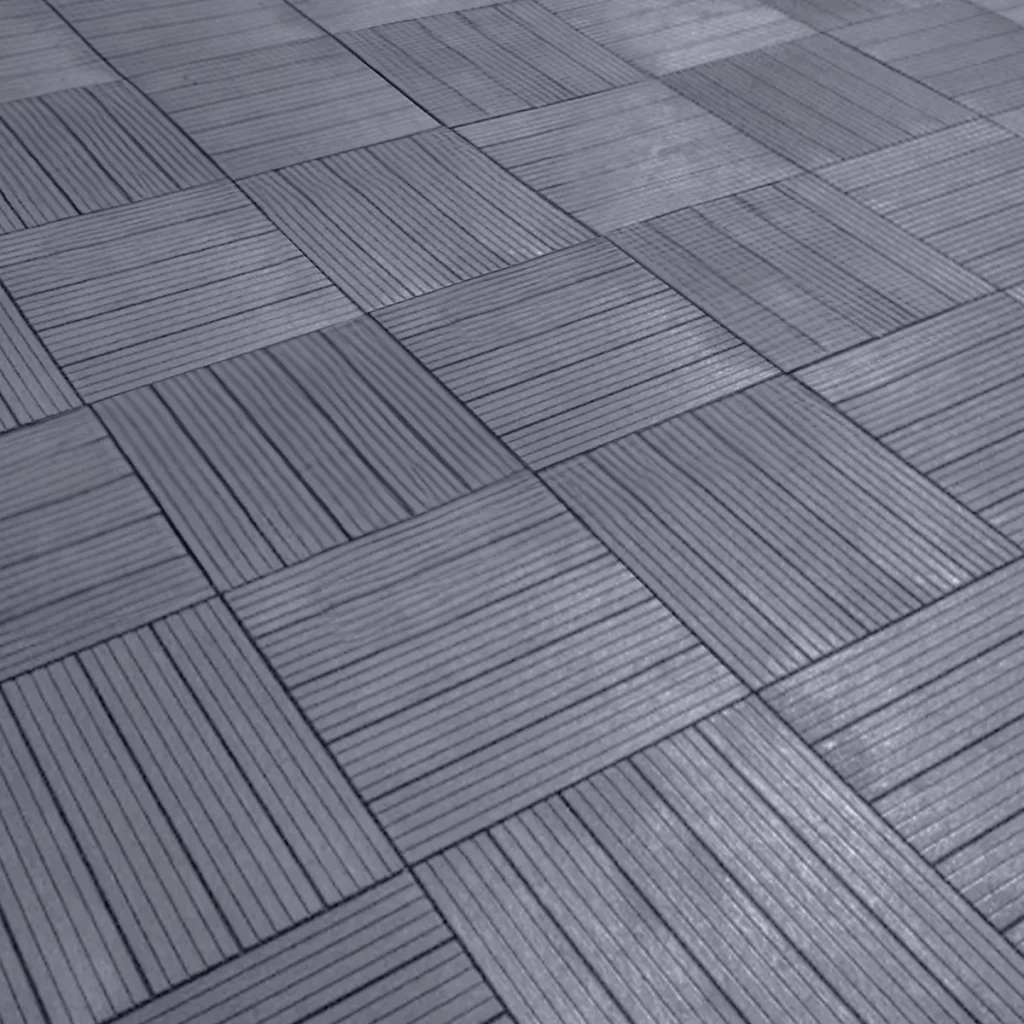
Popular Colours and Finishes in the UK
The best composite decking tiles UK offers come in a wide variety of shades to suit modern and traditional outdoor spaces:
Natural Wood Tones: Teak, oak, walnut
Grey Shades: Weathered grey, slate, stone
Dark Tones: Chocolate brown, ebony, mahogany
Light Colours: Sand, beige, light oak
Mixing and matching colors and finishes can create visually dynamic outdoor areas. For example, alternating grey and brown tiles can define different sections of a patio while adding depth and texture.
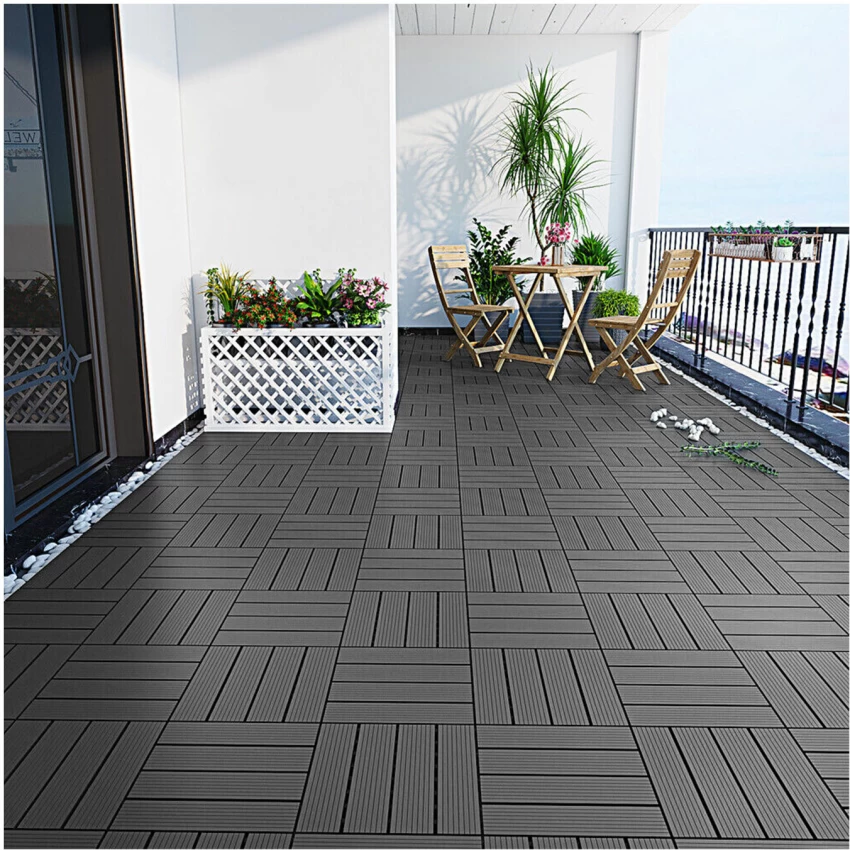
Installation Tips
Most composite decking tiles are designed for easy installation, but following some best practices ensures longevity:
Prepare the Surface: Ensure the ground is level and free of debris. For rooftop terraces, make sure tiles are installed on a waterproof membrane.
Leave Space for Expansion: Composite materials expand and contract with temperature changes; leave small gaps at edges.
Snap Tiles Securely: Ensure interlocking tiles are tightly fitted to prevent movement.
Elevate Where Needed: Use pedestal supports or spacers for drainage and airflow.
Regular Cleaning: Sweep leaves and debris, and occasionally rinse tiles with water to maintain appearance.
Maintenance of Composite Decking Tiles
One of the main reasons homeowners choose composite tiles is low maintenance. Here’s how to keep them in top condition:
Sweep or hose down regularly
Remove stains promptly using mild soap
Avoid harsh chemicals that could damage the surface
Inspect interlocking connections periodically and adjust if necessary
With proper care, composite decking tiles can last 15–25 years in the UK climate, maintaining their appearance and durability.
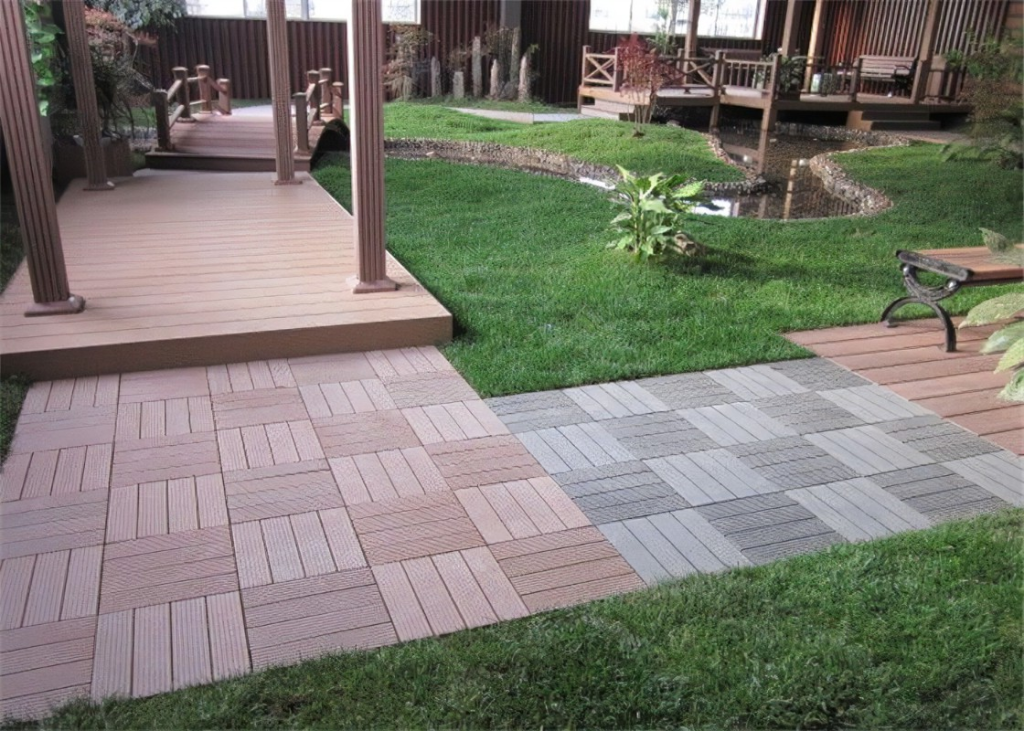
Conclusion
Choosing the best composite decking tiles UK offers requires careful consideration of type, material, finish, and installation style. Whether you prefer wood-plastic composite, PVC, bamboo, textured, perforated, or eco-friendly tiles, there is a solution for every outdoor space. By understanding the various types, their advantages, and ideal applications, homeowners can create stunning, durable, and low-maintenance patios, terraces, and balconies.
Composite decking tiles provide the perfect balance between aesthetics, durability, and sustainability. They offer the charm of natural wood without the high maintenance, making them a smart investment for long-lasting outdoor enjoyment. Whether for DIY projects or professional landscaping, selecting the right type and style ensures a beautiful and functional outdoor area that will stand the test of time.
With numerous types, colors, and finishes available, the UK market for composite decking tiles continues to grow, providing homeowners with endless possibilities to design outdoor spaces that reflect personal style and meet practical needs.

